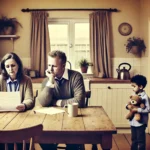Children have the right to expect their parents to fulfill their responsibilities. This Children’s Bill of Rights will help guide you during your separation or divorce.
- Children have the right to be loved and to love both their parents, without feeling guilty, pressured, disapproved or rejected about seeing their mom or dad at any time, particularly during difficult times such as separation and divorce.
- Children have the right to understand that Separation and Divorce are not their fault.
- Children have the right to be children and they shouldn’t worry about adult problems. Children can’t fix their parents problems.
- Children have the right to appropriately express their feelings to either parent and expect their parents to listen.
- Children have the right not to choose one parent over the other. Children’s feelings and their opinions are important.
- Children have the right to be protected from their parents’ anger towards one another and have the right to live in a safe environment. No one is allowed to put children in danger, either physically or emotionally.
- Children have the right to spend time with or speak with family members who love them: grandparents, aunts, uncles, cousins or stepparents, without guilt and without being made to feel disloyal.
- Children have the right not to be caught in the middle of their parent’s break-up and not need to pick sides, pass on messages or hear complaints about the other parent.
- Children have the right to have a regular daily and weekly routine, which is not filled with unpredictable disruptions, problems or unpleasant surprises.
- Children have the right to a life that is as close as possible to what life would have been if their parents had stayed together.
- Children have the right to reasonable financial support during their childhood and throughout their college/university years.
- Children have the right to not be responsible for the emotional needs of either their mom or their dad or be their personal companion.
It’s easy knowing what to do. The hard part is doing it.
When Children Do Well, Parents Do Well
When Parents Do Well, Children Do Well






















